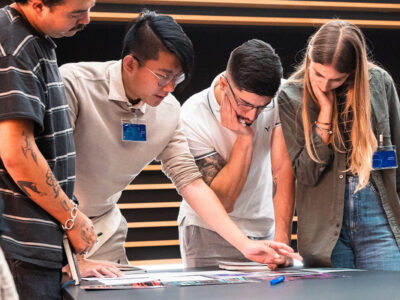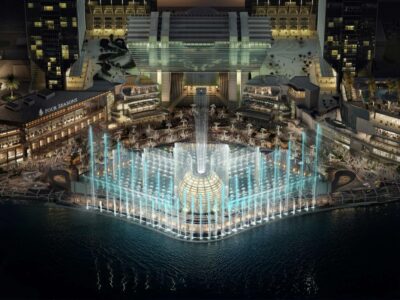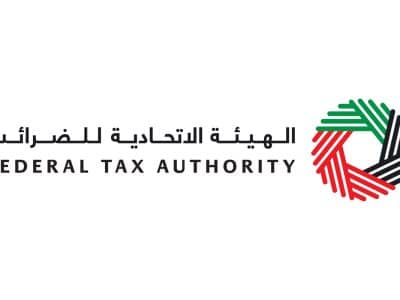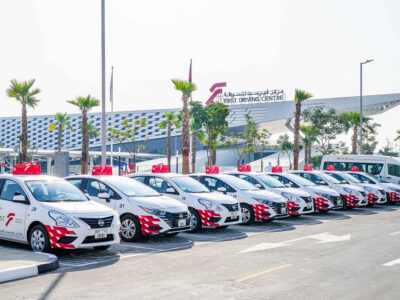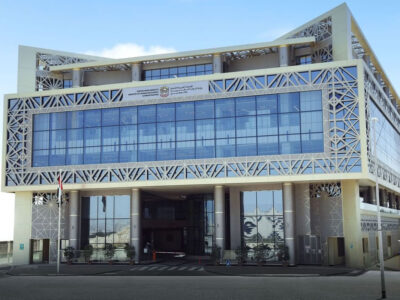The global surge in copper prices has meant that making cables has become a very risky business. Sean Cronin talks to Ducab managing director Andrew Shaw and hears how the Dubai-based manufacturing giant is set to cash in on a power-hungry Gulf.
Andrew Shaw keeps one eye on the road during his drive home from the Ducab factory in Dubai every evening.
The other is trained on the roadside at the detritus of Dubai’s building industry – specifically the discarded copper cable drums that tell him where his competition is coming from, better than any industry consultant could.
“Us sad people in the cable business spend our days counting drums,” says the Ducab managing director, who is spearheading the massive expansion of the Jebel Ali cable manufacturer across the Gulf, after a record year which saw revenues surge 50% to US$653.6m.
It is vital that you get it right. You can bankrupt a cable company if you decide to take a ‘punt’ on where you think the copper price is going.
Shaw is predicting further sales growth of 50% in 2008 – bringing the company close to the billion dollar sales threshold.
The giant timber drums that litter the streets of the boom town carry the names of some of the world’s largest cable companies that supply the arteries and veins of the regional building industry.
As the US construction market slows down, global manufacturers such as Nexans SA, the world’s largest maker of cables and Prysmian SpA, the energy cable maker owned by Goldman Sachs Group, are training their sights on the Gulf, where an ongoing construction boom and power crisis has fuelled booming demand for copper wires of every description.
Shaw arrived at Ducab last August from Prysmian, where he was CEO of the company’s China business. Before that he ran the Prysmian unit in Malaysia. By curious coincidence, his old office in Malaysia was built by the same company that constructed his new one in Dubai.
On his first day at work, he discovered that both buildings are identical down to the location of the kitchen, boardroom and even the copper decorations hanging from the walls. “It was a case of deja-vu when I walked through the door,” says the affable Imperial College London graduate.
Ducab is jointly owned by the governments of Dubai and Abu Dhabi, each of them holding a 50% stake in the venture. The company, which was set up in 1979, produces over 65,000 copper tonnes of high, low and medium voltage cables, mainly for the local market and export throughout the region.
Now Ducab is ramping up production after acquiring a production facility in Abu Dhabi – hoping to see off an expected European invasion of suppliers seeking to shore up falling orders at home with new business in the Middle East and North Africa.
“The global companies have been very busy and the factories in Europe have been running at full tilt – until now,” says Shaw. “Right now, we are a little worried that there has been quite a lot of capacity that is suddenly not so busy any more in its home market.
So where will those companies look to expand? They will look at the Middle East.
Ducab makes around 8 million metres of building cable a week from its sprawling factory in Dubai – and it still can’t keep up with orders from a seemingly insatiable construction sector.Last year, demand for some of its products, such as instrumentation cable, was such that it was forced to quote delivery times as long as nine months. That provided the incentive for the company to expand production last year.
Although those delivery times have been reduced, the company is still struggling to cope with demand from its customers – split roughly a third each between utilities, construction companies and distributors.
Demand from construction continues to surge in the UAE and the other Gulf markets where Ducab exports cable.
“We are still seeing strong demand from construction. We have seen the concrete go up and now the buildings need the cables to go inside them,” says Shaw, adding that the only evidence of a slowdown is coming from the oil and gas sector where some projects are facing delays.
While booming demand has helped drive profit growth in the industry, Shaw says that the volatility in the copper price has created huge risks throughout the supply chain.
Nobody wants to be sitting on large inventories of copper that can move by as much US$200 per tonne in a single day.
Six years ago the commodity cost about US$1500 per tonne. Today it costs manufacturers such as Ducab around US$8500 per tonne – and at any one time the company has as much as US$80m worth of the metal sitting in its Jebel Ali yard.
Copper accounts for some 55% of Ducab’s cost base, which means that hedging against price movements has become as important to the company’s business as fashioning the copper rod into the cables and wires that it sells.
“The risk is immense,” he says. “You need to keep yourself hedged all the way. So on projects where you might have deliveries over the course of 12 months, you hedge each packet of copper going out.
Hedging against price movements is becoming increasingly important for the buyers of copper, where margins can be obliterated by a simple oversight in the procurement process.
“It is vital that you get it right. You can bankrupt a cable company if you decide to take a ‘punt’ on where you think the copper price is going,” he says.
Anticipating increased activity from global cable-makers in the Middle East, Ducab is hoping to consolidate its position in the market through a tie-up with Abu Dhabi-based Electrocab Emarat – a unit of Emirates International Investment Company.Under the deal, Ducab will operate Electrocab’s new cable factory in Musaffah, Abu Dhabi.
“We bought the facility in Abu Dhabi just to make sure we have enough capacity to satisfy demand. The aim is to cooperate outside the UAE where there is no conflict,” says Shaw.
The acquisition has effectively grown the company’s production capacity by about 40%, allowing it to boost exports and grow its regional market share.
The Middle East is running out of power and this is more silver lining than cloud to companies such as Ducab which supply the cables that form the insides of power generation facilities as well as the high and medium voltage lines that connect the power stations to the end-users.
The UAE expects power demand to triple in the next 12 years, which represents a massive opportunity for Ducab and its regional rivals. The regional energy crisis is most severe in Kuwait, which holds 8.4% of the world’s oil but faces a 5000 megawatt electricity shortage by 2010.
Even discounting energy-related sales, the regional cable sector is benefiting from a Gulf-wide construction boom that has ensured demand has been running ahead of supply.
Ducab’s publicly traded competitors such as Oman Cables and Kuwait-based Gulf Cable & Electrical have reported record profit growth over the last year and are rewarding shareholders with bigger dividend cheques.
For the time being, Ducab remains a private company although Shaw concedes that a share sale may be an option for the company’s owners in the future – although he stresses that would be their decision.
In the meantime, Shaw will continue counting the drums and reading the names on the sides, to keep tabs on where the competition is coming from.
As the North American and European construction industries slow, it seems probable that more of those drums will bear the names of Ducab’s global rivals, hungry to find new orders on the building sites of the Middle East.
The evidence of that trend is visible on the drive back from the company’s Jebel Ali production facility. Next to an open trench running parallel with the highway beside the vast Mall of the Emirates shopping centre are a pile of giant wooden spools with the cable wound round them disappearing into the sand.
You can just make out the name on the side of one of them. It reads ‘Nexans’, the Paris-based company that is the world’s largest cable maker. I wonder if Shaw’s spotted it as well.
